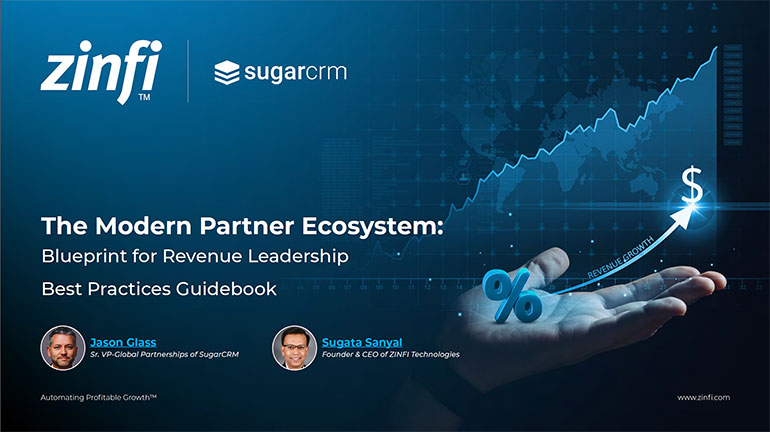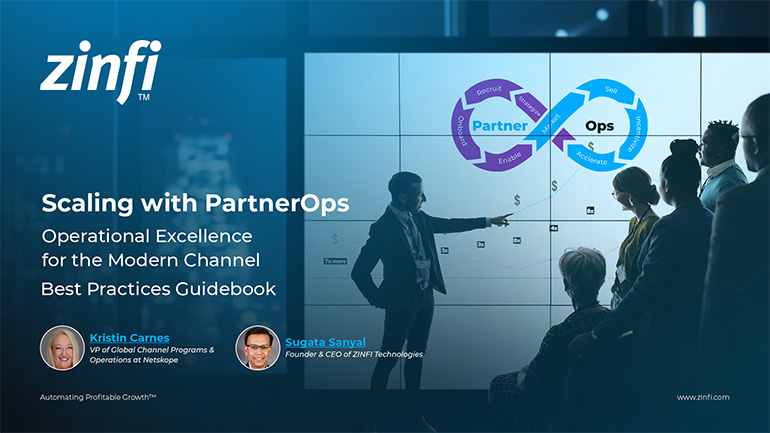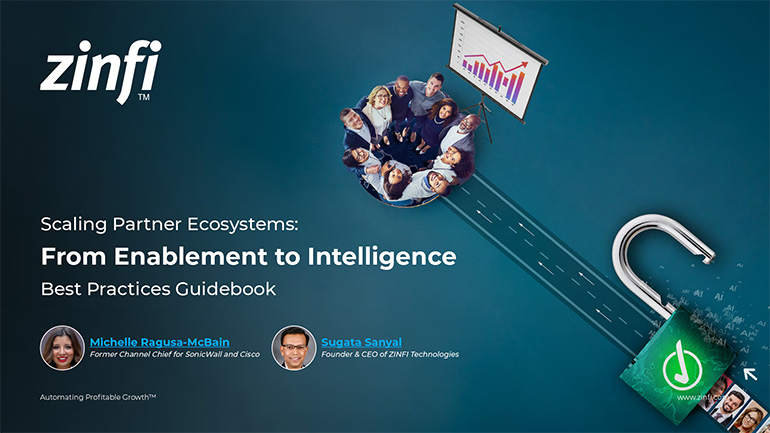Best Practices Articles

10 Reasons Deal Registration Programs Often Fall Short
Introduction
Companies commonly employ deal registration programs to incentivize and reward their sales partners for bringing in new business opportunities. However, these programs often fail to deliver the desired outcomes despite their intentions. This article will explore 10 key reasons deal registration programs frequently fall short. Once they understand these challenges, businesses can proactively enhance their deal registration programs and increase their effectiveness.
- Lack of Clear Guidelines and Communication
One of the primary reasons deal registration programs fail is a lack of clear guidelines and effective communication between the company and its sales partners. Unclear registration criteria, ambiguous rules, and inadequate documentation can confuse and frustrate partners. Without well-defined guidelines, partners may struggle to register deals, resulting in incorrect or incomplete registrations properly. This lack of clarity hampers program effectiveness and can lead to disputes and mistrust between partners and the company. - Complex Registration Processes
Complex and time-consuming registration processes deter sales partners from participating fully in deal registration programs. Lengthy forms, multiple approval stages, and excessive paperwork can discourage partners from engaging with the program. The more cumbersome the process, the less likely partners are to register deals. Simplifying and streamlining the registration process by leveraging user-friendly online platforms and automating approval workflows can significantly improve partner engagement and program effectiveness. - Inadequate Incentives and Rewards
Deal registration programs often fall short due to inadequate incentives and rewards. Sales partners need strong incentives to prioritize deal registration over other competing activities. Insufficient rewards can discourage partners from fully committing to the program, leading to underutilization or abandonment. Offering attractive financial incentives, exclusive discounts, and valuable non-monetary rewards can motivate partners to participate actively in the program, increasing the chances of generating qualified leads. - Limited Partner Enablement
Without proper partner enablement, deal registration programs are destined to underperform. Many companies fail to provide sufficient training and resources to equip partners with the necessary knowledge and skills to identify and register deals effectively. A poor understanding of deal registration processes, value propositions, and competitive differentiators leaves partners ill-equipped to navigate the program successfully. By investing in comprehensive partner enablement initiatives, including training sessions, educational materials, and ongoing support, companies can empower partners to maximize their engagement and drive program success. - Internal Competition and Channel Conflict
Internal competition and channel conflict often undermine the effectiveness of deal registration programs. Conflicts can arise when different sales teams or partners within the same company compete for the same opportunities. This can lead to disputes over who registered the deal first, resulting in resentment, mistrust, and potentially lost business. Vendors must establish clear rules and protocols to address internal competition and channel conflict, such as prioritizing the first registration or implementing a fair deal allocation system. This will help mitigate these issues and foster a more collaborative environment. - Insufficient Deal Protection
A lack of deal protection can significantly diminish the value of a deal registration program. Without adequate safeguards, sales partners may invest time and resources into nurturing and developing a deal, only to be snatched away by another partner or an internal sales team. This not only erodes partner trust but also discourages future registrations. Vendors can safeguard the efforts and investments made by sales partners and promote their active involvement in the program by implementing robust deal protection mechanisms, such as protected deal status or providing exclusive rights for the registering partner. - Limited Visibility and Reporting
Deal registration programs must provide clear visibility and reporting capabilities to track program performance accurately. Lack of visibility into deal status, registration metrics, and program effectiveness makes it challenging for companies to assess the success and impact of their deal registration programs. Without proper reporting, it becomes difficult to identify bottlenecks, analyze trends, and make informed decisions to optimize the program. Companies should implement robust reporting mechanisms to address this challenge and provide real-time visibility into registered deals, conversion rates, and revenue generated. This will provide them with valuable insights and help them refine their strategies, allocate resources more effectively, and recognize top-performing partners. - Inadequate Partner Feedback Loop
Deal registration programs often fail to incorporate a feedback loop with sales partners, limiting the program’s potential for improvement. Partners on the front lines may have valuable insights into the program’s strengths and weaknesses and suggestions for enhancements. However, without a mechanism for partners to provide feedback and share their experiences, companies miss opportunities to refine the program and address partner concerns. Establishing a structured feedback mechanism, such as regular surveys, partner advisory councils, or dedicated account managers, can help companies understand partner perspectives, identify areas for improvement, and create a more collaborative and mutually beneficial program. - Lack of Sales and Marketing Alignment
A lack of alignment between sales and marketing teams often impedes the success of deal registration programs. For example, when marketing fails to generate good leads or deliver qualified opportunities, sales partners may perceive little value in registering deals. Misalignment can also result in ineffective lead nurturing, limited marketing support materials, or inconsistent messaging, hindering partner success in closing documented deals. To build a successful deal registration program, companies must foster strong collaboration between sales and marketing so the two groups can align their efforts, ensure a steady flow of quality leads, provide targeted sales enablement resources, and deliver cohesive messaging throughout the buyer’s journey. - Insufficient Program Promotion and Awareness
Deal registration programs often fail due to a lack of promotion and awareness, both internally and externally. If partners are unaware of the program’s existence, benefits, or the process of registering deals, they are unlikely to engage fully. Similarly, internal stakeholders, such as sales managers or executives, must actively promote the program and emphasize its significance to the organization’s success. By implementing comprehensive communication and marketing strategies – including regular program updates, training sessions, webinars, and promotional materials – companies can generate excitement, raise awareness, and foster active participation among partners.
Conclusion
Deal registration programs can be powerful tools for driving partner engagement and generating new business opportunities. However, companies must address common pitfalls that lead to program underutilization or failure to maximize their effectiveness. By focusing on clear guidelines, streamlined processes, adequate incentives, partner enablement, deal protection, visibility, feedback loops, sales, marketing alignment, and program promotion, businesses can create a robust deal registration program that empowers partners, enhances collaboration, and drives tangible results.
For more information, please check this article.
Best Practices Guidebook
 Partner Ecosystem Playbook: Build, Scale, Succeed Best Practices
Partner Ecosystem Playbook: Build, Scale, Succeed Best PracticesDownload for FREE
 Mastering LinkedIn: Building Personal Brands for Social Selling
Mastering LinkedIn: Building Personal Brands for Social SellingDownload for FREE
 Unified Communications: The Backbone of Modern Digital Growth
Unified Communications: The Backbone of Modern Digital GrowthDownload for FREE
 The Channel Sales Playbook: Skills, Strategy, and Growth
The Channel Sales Playbook: Skills, Strategy, and GrowthDownload for FREE
 Blueprints for Vertical Success Best Practices
Blueprints for Vertical Success Best PracticesDownload for FREE
 The Future of Partner Enablement: From Enablement Gaps to Global Advantage
The Future of Partner Enablement: From Enablement Gaps to Global AdvantageDownload for FREE
 Reimagine Sales Development. Build a Smarter Prospecting Engine
Reimagine Sales Development. Build a Smarter Prospecting EngineDownload for FREE
 The Zero Trust Imperative: Fortifying Enterprise Security Against AI-Driven Threats
The Zero Trust Imperative: Fortifying Enterprise Security Against AI-Driven ThreatsDownload for FREE
 PartnerOps Excellence: The Definitive Guide to Scalable SaaS Ecosystems
PartnerOps Excellence: The Definitive Guide to Scalable SaaS EcosystemsDownload for FREE
 The Modern Partner Ecosystem Best Practices
The Modern Partner Ecosystem Best PracticesDownload for FREE
 Partner Marketing Reimagined: Strategies for Agile, Insight-Led Growth
Partner Marketing Reimagined: Strategies for Agile, Insight-Led GrowthDownload for FREE
 Scaling with PartnerOps Best Pratices
Scaling with PartnerOps Best PraticesDownload for FREE
 Leading with Partner Programs Best Pratices
Leading with Partner Programs Best PraticesDownload for FREE
 The Partner-First Blueprint: Scaling Trust, Intelligence, and Ecosystem Growth
The Partner-First Blueprint: Scaling Trust, Intelligence, and Ecosystem GrowthDownload for FREE
 Unlock Scalable Growth with The Partner Marketing Growth Blueprint
Unlock Scalable Growth with The Partner Marketing Growth BlueprintDownload for FREE
 From TikTok to LinkedIn: Social Selling Across the Generational Divide
From TikTok to LinkedIn: Social Selling Across the Generational DivideDownload for FREE
 Scaling Partner Ecosystems: From Enablement to Intelligence
Scaling Partner Ecosystems: From Enablement to IntelligenceDownload for FREE








